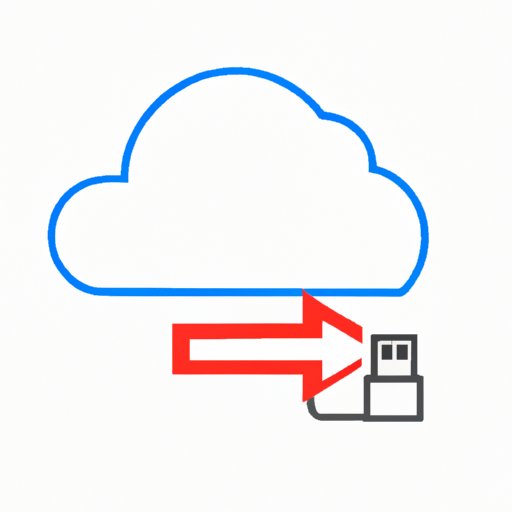
Introduction
Do you find yourself constantly receiving error messages about insufficient disk space on your computer? Running out of storage can be frustrating, as it not only prevents you from downloading or saving new files, but it can also slow down your computer’s overall performance. Fortunately, there are several easy ways to free up disk space and optimize your computer’s storage. Here are five ways to free up space on your computer.
Identify and Remove Large or Unnecessary Files
One of the easiest ways to free up disk space is to identify large or unnecessary files and remove them. You can use disk space analyzer tools like WinDirStat or TreeSize to quickly identify files and folders that are taking up a lot of space on your hard drive. Once you have identified these files, you can choose to delete or move them to an external hard drive. Consider deleting old documents, music, movies, or backups that you no longer need. Be sure to empty your recycling bin afterwards, or the deleted files will still take up storage space.
Utilize Cloud Storage
Another method to free up disk space is to utilize cloud storage. Cloud storage services like Google Drive, Dropbox, and OneDrive offer gigabytes of free storage, which can be accessed from anywhere, at any time, on any device. To use cloud storage, simply sign up for an account, download the application onto your computer, and move your files into the cloud. This way, you can free up storage on your computer without actually deleting any files, and enjoy the added benefits of being able to access your files from anywhere.
Delete Temporary Files and Caches
Temporary files and caches are temporary files created by your computer and certain applications to store data that is frequently accessed, often for faster loading times. Unfortunately, over time these files can accumulate and take up a lot of storage on your hard drive. To delete temporary files and caches, you can use the built-in Disk Cleanup tool on Windows or third-party tools like CCleaner. This not only frees up disk space, but also helps to improve your computer’s performance.
Uninstall Unused Applications
If you have applications that you never use, uninstalling them can be an easy way to free up disk space. On Windows, go to the Control Panel, and select “Programs and Features” to see a list of all installed applications. You can sort by size or date of installation, and then select and uninstall any applications that you do not use. Be sure to double-check before uninstalling, as some applications may be necessary for your computer’s performance, such as drivers and software for hardware components.
Compress Files
Compressing files is another way to reduce the size of files and free up disk space. Compressed files take up less storage space, and can be easily extracted when needed. You can use built-in tools like WinZip on Windows or Stuffit on Mac, or third-party programs like 7-Zip or WinRAR. Images, videos, and documents can easily be compressed, and keep in mind that some file types, like JPEG and MP4, already use compression.
Conclusion
In conclusion, there are several easy ways to free up space on your computer and improve its performance. Removing large or unnecessary files, utilizing cloud storage, deleting temporary files and caches, uninstalling unused applications, and compressing files are all effective methods. The important thing is to regularly maintain your computer’s storage and avoid accumulating unnecessary files. By following these tips, you can keep your computer running smoothly and avoid the headaches of running out of disk space.





